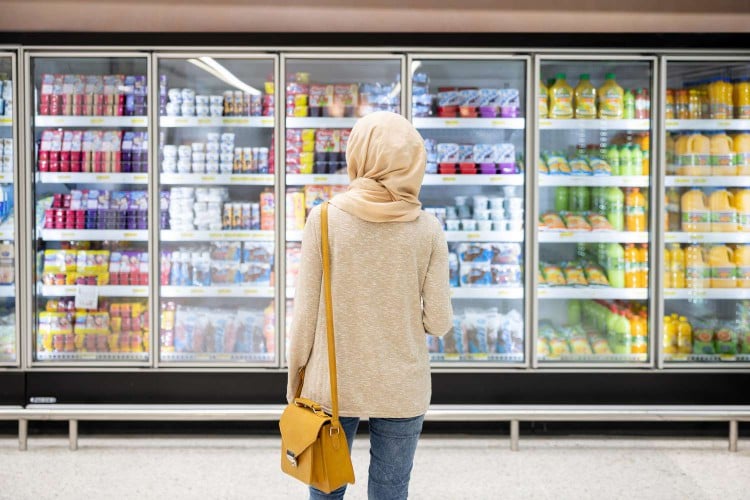
- Obesity is the fifth leading cause of death around the world.
- In their recent systematic review, experts in Romania observed that people are more likely to gain and keep extra weight during the winter holidays.
- The researchers found that people with obesity perceive food differently than those with lower body mass indices (BMIs), which can lead to increased caloric intake.
- The experts say that ‘comprehensive’ and ‘persistent intervention and support’ may effectively counter progression of the disease.
Medical specialists at the Grigore T. Popa University of Medicine and Pharmacy in Iasi, Romania surveyed winter holiday dietary patterns. The cultural season is notorious for overconsumption of high-calorie, high-sugar foods, drinks, and alcohol, along with decreased physical activity.
The experts considered psychological factors influencing weight gain during winter holidays and the nutritional makeup of popular festive foods.
They found that most people in the studies they analyzed kept the weight they gained during the holiday season, especially those with obesity.
The researchers believe that this systematic review was the first to explore the significance of nutritional patterns during the winter holidays.
They hope that their findings, published in Nutrients, can help encourage behaviors linked to long-term success in weight management.
How do the winter holidays impact obesity?
The extra weight can amount to more than 50% of the total gained throughout the year. Consequently, holiday excess pounds might contribute to a cycle of gradually increasing weight over a person’s lifetime.
Medical News Today discussed this study with Dr. Steven Batash, a board-certified gastroenterologist and leading physician at Batash Endoscopic Weight Loss Center. He was not involved in the research.
When asked about how the holidays can influence obesity, Dr. Batash suggested:
“The holiday season can be stressful and those experiencing stress tend to have higher levels of cortisol, the hormone that’s released in response to stress. High cortisol levels may cause weight gain because of the constant urge to eat.”
The gastroenterologist added that people might have up to 80% higher levels of
Dr. Batash explained that “[t]his means disrupted sleep can increase appetite, which can cause a higher intake of calorie-dense foods and an increased chance of weight gain.”
What makes it hard to resist overeating during the holidays?
MNT also discussed the study with Kelsey Costa, a registered dietitian and nutrition consultant for the National Coalition on Healthcare. She was not involved in the research.
Costa posited that: “The most significant contributor is the abundance of highly palatable and calorie-dense foods available during this time. These foods are often linked to feelings of comfort and joy, making it difficult for individuals to resist indulging.”
Furthermore, the scope of foods presented at workplaces and social gatherings often exceeds the
The nutritionist reasoned that the shift in dietary habits may be “propelled by a ‘one-last-time to indulge’ attitude” before hopefully adopting healthier habits in the new year.
Combined with increased sedentary behaviors, these factors can make people more susceptible to weight gain during the holidays.
MNT also spoke with Dr. Nilda Agnes Abellera, the medical director of Infuze MD and The Superhuman Clinic, about this study. She was not involved in this research.
Dr. Abellera agreed that excess sugar and reduced physical activity are the primary drivers of obesity.
She cautioned: “While it’s easy to be complacent with exercising, you don’t want to be a couch potato and wait until January to start. I’ve seen some patients with this mentality gain 5–10 pounds between Thanksgiving and New Year’s.”
Systematic review of holiday eating habits
The Grigore T. Popa University team saw an urgent need to develop effectual strategies for fighting obesity, which is often difficult to reverse once established. They believed that it is essential to gain an understanding of when people are especially vulnerable to weight gain.
To this end, the researchers performed a systematic search of the literature on eating behaviors and weight gain during the winter holidays.
The studies, published from 2013 to 2023, included only adult participants ages 18 to 65. After screening 216 articles, the researchers focused on 10 that specifically addressed the topic of interest.
Nine of the studies took place in the United States, Spain, or the United Kingdom, while one included participants in the U.S., Germany, and Japan.
A total of 4,627 individuals were included in the studies. Females predominated in six of the studies at 65–60%, while one study enrolled 66–74% males.
In eight of the studies, participants made at least two visits to the study labs to provide data. One study used wireless scales and another used self-weighing to assess weight changes.
Holiday weight gain can have long-term impact
The one multi-national study gathered information on the weight changes of 2,924 people from the U.S., Germany, and Japan over a 12-month period.
The participants in all three countries experienced weight fluctuations during the winter holidays. About half of the weight gained remained until the end of the study, suggesting that holiday-related weight gain can produce long-term effects.
In other studies, the experts observed that people with obesity were more likely to gain weight on vacation than people with normal weight. Some research showed a positive correlation between eating at restaurants during the holidays and increases in BMI.
Obesity linked to more difficulty losing holiday weigh gain
The research team found that typical winter holiday eating patterns have consistently induced weight gain in people with normal or higher BMIs.
Moreover, individuals with obesity gained more weight than those with normal weight, and they had greater difficulty losing the extra pounds after the holiday season.
The researchers concluded that obesity is a “multifaceted condition” that requires continual, multidisciplinary assistance for weight management.
Study strengths and limitations
The study authors said that collecting information on eating patterns during winter vacations was a strong point of their research.
However, their work involved relatively few articles, and the study methods employed varied widely.
The authors mentioned that their focus on “only 10 years” of research might be another limitation.
Furthermore, many experts argue that BMI may not be an accurate determinant of overweight or obesity.
The authors faced a paucity of studies on older populations as well.
Tipping the scales
The researchers who conducted this review advise against extreme, unsustainable measures for staving off extra pounds in their paper.
Their review includes several tips for reducing the risk of weight gain during the winter holiday season, including:
- if you are eating multiple meals per day, consider adjusting consumption to smaller portions or only one course of a meal
- opt for a salad in place of an appetizer, or have a cup of coffee or tea instead of dessert
- choose water or sugar-free beverages
- create alternative activities to encourage movement and deflect emphasis on food
- limit screen time and enjoy eating at the table instead of the couch
- check food labels for fat and sugar content
- manage stress through deep breathing exercises, meditation, or sports
- get as much sleep as your body needs
- find an accountability partner for more motivation throughout the holidays and beyond.








